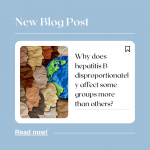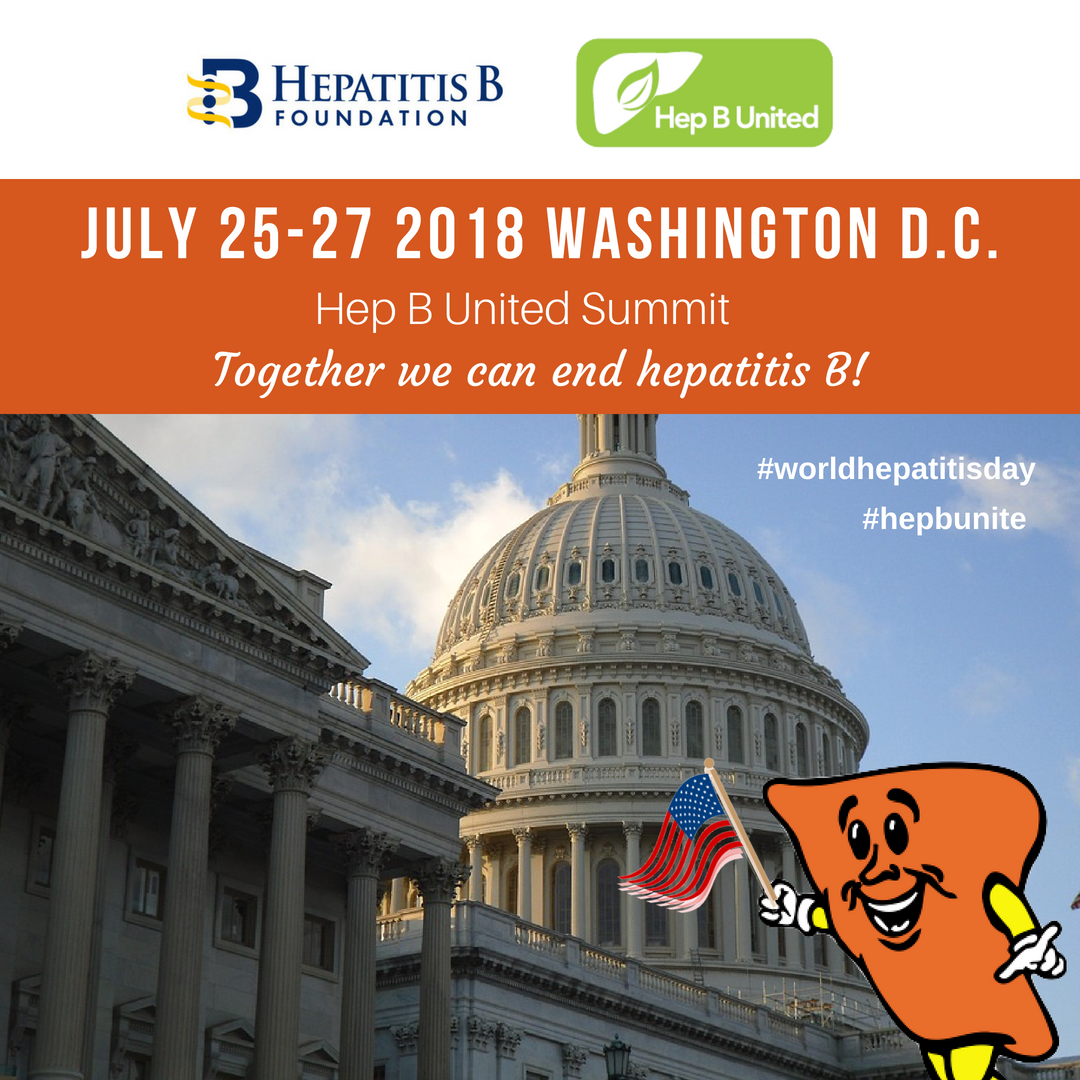
Hepatitis B is a global public health crisis. While it is heavily underreported across the world, experts estimate that there are approximately 300 million people living with chronic hepatitis B. Anyone can get hepatitis B. The hepatitis B virus does not discriminate. This is why it is crucial for everyone to get tested for hepatitis B at least once in their lifetime and get the hepatitis B vaccine.
However, some people are at a greater risk for developing chronic hepatitis B than others. This is not necessarily because some people are genetically predisposed to the virus but because of poor awareness and lack of resources to prevent or treat hepatitis B. It is important to understand that health is influenced by many different factors including genetics, our environment, availability of resources and access to care. To fully understand the reasons behind racial and ethnic disparities in hepatitis B prevalence across the globe, we must understand the social determinants of health associated with hepatitis B testing and care.
Differences in HBV Genotypes
Genotypes describe the characteristics of the virus. The hepatitis B virus (HBV) contains many different genotypes, which explains why the virus impacts people in different ways (i.e., how the virus spreads to others, likelihood of developing serious liver disease, etc.). Some genotypes such as genotype A can increase the chances of chronic (long-term) infection.
Certain HBV genotypes are more common in some regions of the world than others, which may explain why some people are more likely to experience worse health outcomes than others (Sunbul, 2014).
Genotype A is commonly found in the African region. Genotypes B and C are found in the Asia Pacific regions. Genotype D is less likely to lead to a chronic infection but can still result in serious liver failure without proper intervention. Genotype D is found mostly in South Asia (Pakistan and India). Source: Sunbul M. (2014). Hepatitis B virus genotypes: global distribution and clinical importance. World journal of gastroenterology, 20(18), 5427–5434. https://doi.org/10.3748/wjg.v20.i18.5427
Social Determinants of Health
Public health researchers call the economic, cultural and political factors that shape society “social determinants of health,” which go beyond medical care and insurance coverage. Our health is influenced by our access to education, employment opportunities, local, state and national policies, and our neighborhood and environment. (Greene at al., 2017).
In the global context of hepatitis B prevention and treatment, some groups are at a better advantage than others. Some countries are more technologically advanced with a strong economy. This makes access to testing, vaccine, clinical trials, and treatment options much easier for some populations (though disparities still exist). Political will and access to economic resources impact what public health issues should be prioritized for in many countries. If a country has a poorly maintained economy and access to resources is limited, it is less likely to develop or sustain critical public health programs to prevent or test for hepatitis B or provide proper care for those living with hepatitis B. In some regions, access to schools and education is restricted, which impacts health literacy and access to economic mobility. Poor awareness due to low health literacy and limited knowledge about hepatitis B is usually because of overall education deficiencies. This makes it difficult for people to understand health education if they lack basic literacy skills (i.e., if they cannot read or write). In other regions, health literacy is not prioritized. Some people have better access to tools and resources that help them understand how to navigate the health care system, get medical insurance and make better decisions about their health (e.g., starting treatment or routinely getting ultrasounds to monitor liver function) (Greene et al., 2017).
In the U. S., hepatitis B is an important health concern for many Asian and African immigrant populations. This is partially due to low or poor vaccination rates in their country of origin (some countries do not have policies on mandatory vaccination, access to adult vaccination or sufficient access to birth dose). While people should be getting screened for hepatitis B during the immigration process, this does not always occur. Immigrant populations also tend to have lower rates of insurance coverage. Many either lack healthcare insurance or do not have adequate insurance.
Cultural barriers pose a critical challenge to getting people screened and vaccinated as health education materials on hepatitis B are not always available in other languages, such as Khmer or Mandarin. This makes them more likely to avoid getting care or using preventative services such as hepatitis B screening and vaccination due to fears of high out-of- pocket costs, disruptions in their immigration process and cultural factors. Cultural barriers pose a critical challenge to getting people screened and vaccinated as health education materials on hepatitis B are not always available in their native languages.
The Hepatitis B Foundation and the Hep B United Coalition work with local, national, and global partners to address barriers around hepatitis B and liver cancer for impacted communities. Local coalitions such as Hep B United Philadelphia work with community-based organizations like African Family Health Organization (AFAHO), Philadelphia Chinatown Development Corporation (PCDC), and SHAMS Health Clinic to increase uptake of screening and provide education on hepatitis B and liver cancer among Asian and African immigrant communities.
References:
Greene, K. M., Duffus, W. A., Xing, J., & King, H. (2017). Social Determinants of Health Associated with HBV Testing and Access to Care among Foreign-born Persons Residing in the United States: 2009 – 2012. Journal of health disparities research and practice, 10(2), 1–20.
Sunbul M. (2014). Hepatitis B virus genotypes: global distribution and clinical importance. World journal of gastroenterology, 20(18), 5427–5434. https://doi.org/10.3748/wjg.v20.i18.5427


 The annual Hep B United Summit, organized by the
The annual Hep B United Summit, organized by the